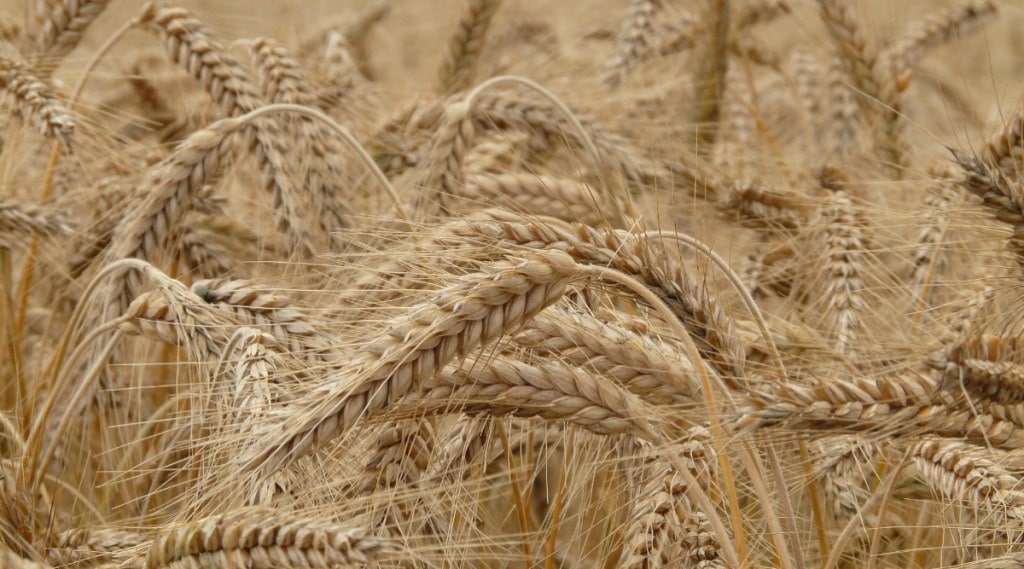The Cabinet Committee on Economic Affairs (CCEA) on Wednesday approved increases in the range of 2-9.1% in the minimum support prices (MSPs) of six rabi crops for the 2023-24 (July-June) marketing season. The MSP for wheat, the key winter crop, has been hiked by Rs 110 (5.5%) to Rs 2,125 per quintal, which will fetch the farmer returns over cost of 100%, the government said in a statement.
The MSP hikes, which are neither steep nor modest, come at a time when food inflation is elevated. Consumer price index for “cereals and products” category soared to a 105-month high of 11.53% in September.
Also Read: Nafed sells chana below MSP to liquidate surplus stocks
Of course, among the rabi crops, MSP procurement is the most effective for wheat. Procurement is likely to be robust in the current season given the low levels of stocks with the Food Corporation of India (FCI) and other government agencies. There is currently a ban on wheat exports.
Wheat and rice with government agencies have fallen to a five-year low as on October 1 with wheat stocks at around the buffer level.
According to an official release, the absolute highest increase in MSP has been approved for lentil (masur) by `500 per quintal, followed by rapeseed & mustard by Rs 400 per quintal.
Briefing media, Information and Broadcasting Minister Anurag Thakur said the government has ensured 100% over the cost of production in the case of wheat and mustard. In the case of the other four rabi crops, the hikes ensure 50-85 % return over cost of production, he added.
Also Read: Brisk start to FCI’s paddy procurement drive
The government has extended the free ration scheme – Pradhan Mantri Garib Kalyan Anna Yojana (PMGKAY) – by three months to December end. The food ministry had earlier cautioned Rice stocks in the central pool are likely to plunge below the buffer norm by 2.1 million tonne (MT) or 15.5%, if PMGKAY is extended to the whole of the second half of the current financial year.
Retail food inflation rose sharply to 8.6% in September, from 7.6% in August, mostly driven by a jump in the prices of cereals and vegetables. This has pushed overall inflation measured by the consumer price index to 7.4% on year in September, from 7% in the previous month.
Inflation in “food and beverages” rose to 8.4% in September, from 7.5% reported in August, because of a spike in prices of cereals, and some of the key vegetables and fruits. According to traders, the food prices may inch up further in the next couple of months, given the damage to the kharif paddy crop and decline in wheat output in the last rabi season which led to a fall in stocks.
Meanwhile, kharif paddy procurement by the FCI and state government agencies has got off to a brisk start in states like Punjab.
The MSP is the rate at which the government buys grain from farmers. Currently, the government fixes MSP for 23 crops grown in both kharif and rabi seasons.
Sowing of rabi crops begins in October, after the harvest of kharif (summer) crops.
With prices coming under strain owing to fall in domestic wheat output and over 50% fall in government procurement at 19 million tonnes in 2022-23 marketing year, the government had to ban overseas sale of the grain in May.
While wheat prices have risen in comparison to the last two years, Food Secretary Sudhanshu Pandey on Monday said the increase in both wholesale and retail wheat prices is not “abnormal” and the government would intervene when required.
According to the government, since 2014-15, there has been a renewed focus on increasing the production of oilseeds and pulses. The efforts have yielded good results. The productivity of pulses and oilseeds has increased substantially.
(With PTI inputs)


